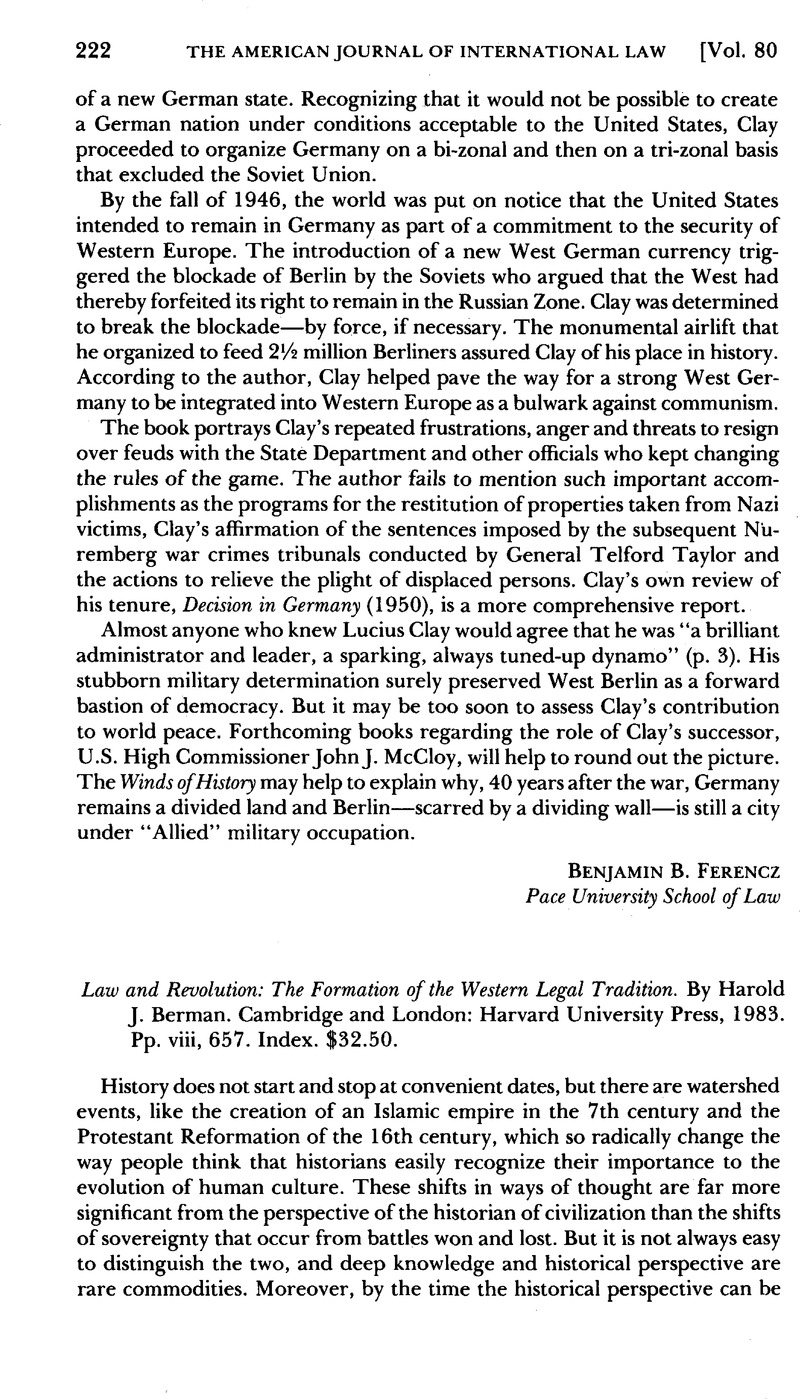Published online by Cambridge University Press: 27 February 2017

1 For example, with some amusement Berman mentions the current Western practice of refusing to execute a condemned murderer who is insane until he recovers his sanity. Clearly, no deterrent, retributive or reforming purpose is served by deferring the execution. The origin of the rule is said to lie in the church’s insistence that nobody be consigned to eternal suffering until he has had the opportunity to confess his sins and take holy communion (p. 166), acts with religious effect only if undertaken or refused by a person of sound mind.
2 Constantine died with Christian rites in A.D. 337. Whether there was any discrete act of conversion before then is a matter of considerable conjecture by scholars. A. H. M. Jones, Constantine and the Conversion of Europe 73 (1948, Collier Books ed. 1962). Jones says that there is “no manner of doubt” that Constantine was “in some sense converted to Christianity” in 312, not 313.